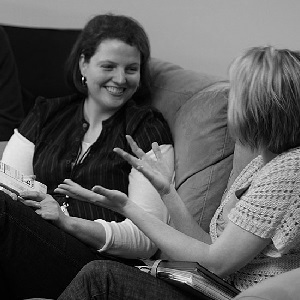It will be women who shape Jeremy Corbyn’s ‘new politics’
Jeremy Corbyn’s election gave him an overwhelming mandate, and ushers in a new and exciting period for the Labour Party. Thousands have joined in recent months, with many more coming on board since he became leader, all attracted by the...
Jeremy Corbyn’s election gave him an overwhelming mandate, and ushers in a new and exciting period for the Labour Party. Thousands have joined in recent months, with many more coming on board since he became leader, all attracted by the promise of a different kind of politics.
Jeremy’s passion for the new politics presents a real opportunity for women in the Labour movement. After all, the status quo has rarely advanced the cause of women – something we were painfully reminded of at the special conference, when not a single woman appeared to speak on the platform at Labour’s leadership election result.
So why aren’t women in positions of power in the Labour Party and in the wider Labour movement? We have made huge strides forward in the representation of Parliament, for which we can thank, among others, the Labour Women’s Network and pioneering women MPs like Harriet Harman. But we still have much to do.
Jeremy took a good first step by appointing more women than men to his shadow cabinet, with women now making up 52% of all front bench roles. This is the first time ever that women have been in the majority at the cabinet table. But progress for women in public life is not just about how many of us are in the Commons. It’s about the accessibility of politics to women, how comfortable they feel in expressing themselves, and how easy it is for women to define the terms in which politics is conducted. It’s also about ensuring that policy and priorities are determined by what’s important in women’s lives.
The new politics means women taking the lead in pioneering a new way to do business. The framework of politics, both in public and behind the scenes, has been male-dominated, macho in style, and too much concerned with command and control. Women have had to try and contort themselves to fit inside this masculine structure. Jeremy’s commitment to a new, authentic style of doing business gives people the green light to be themselves. In a political and economic culture dominated by men, this is surely an opportunity for women to come in, enter politics, and break from the old way of doing things, to the benefit of our whole Labour movement.
Of course this presents a challenge, as well as an opportunity. We will all have to ask ourselves new and searching questions about the way we work. Politicians and leaders right across public life must ask themselves – whose voices do you listen to? Who do you surround yourself with? Who is missing from your discussions, both in the advice that you take, and in decision making? Who do you take most seriously? But we can’t expect or allow men to simply hand us the power to change our party. Women themselves must be at the forefront of answering these questions and driving change.
So on Saturday, as we hold our women’s conference, and over the weeks to come, I expect lively and purposeful discussions – looking forwards to what we will become, not backwards to what we have been. The world is changing, politics is changing, and Labour needs to change too. Putting women at the heart of our party must be a symbol, a driver, and a guarantee of the change we need.

